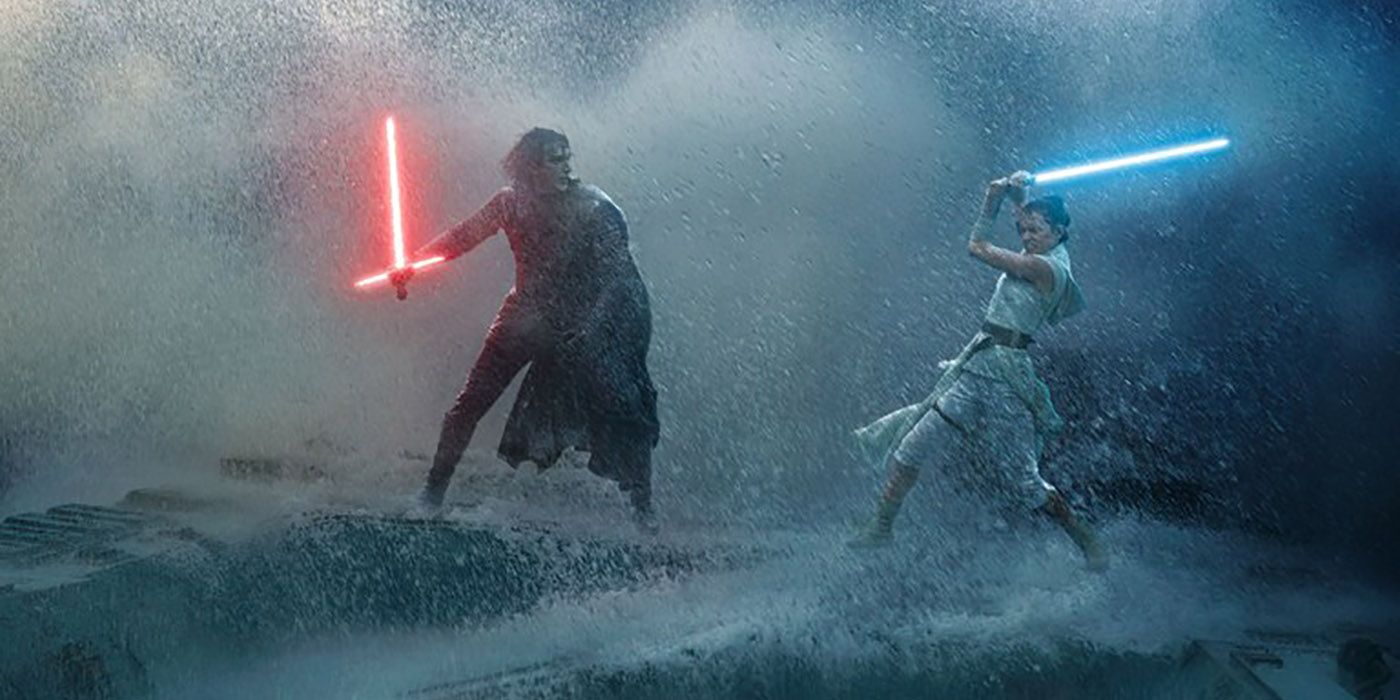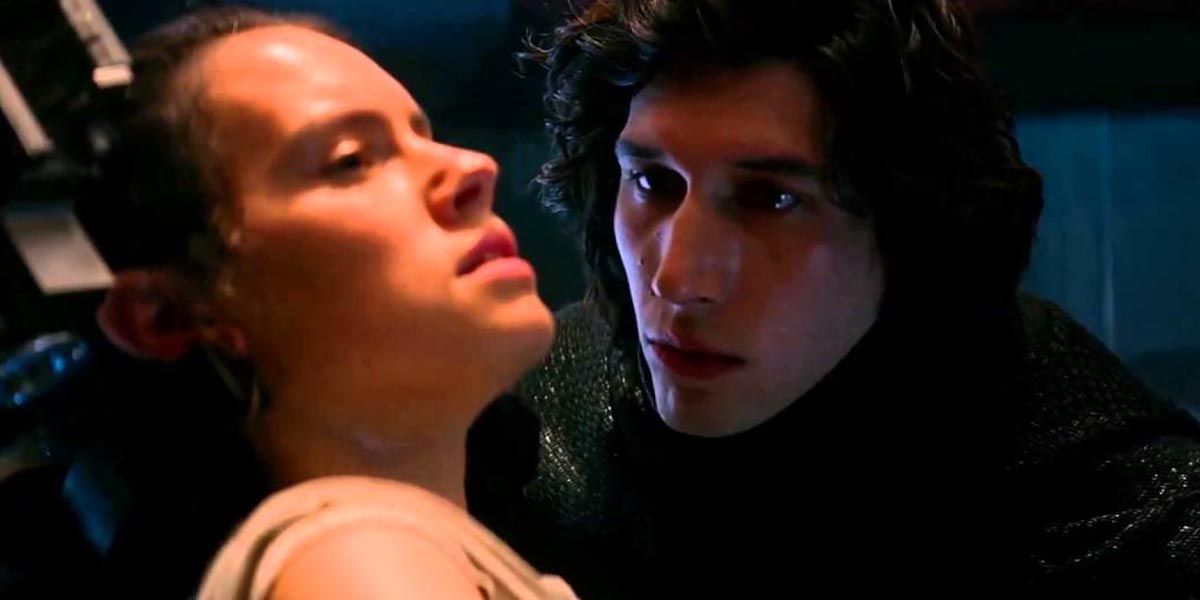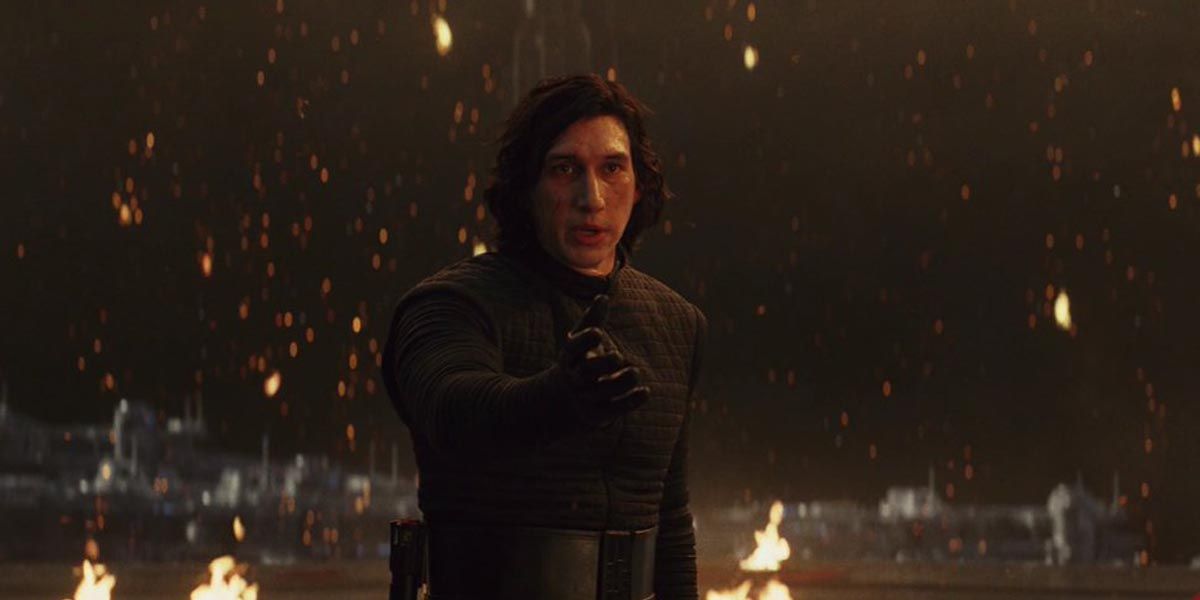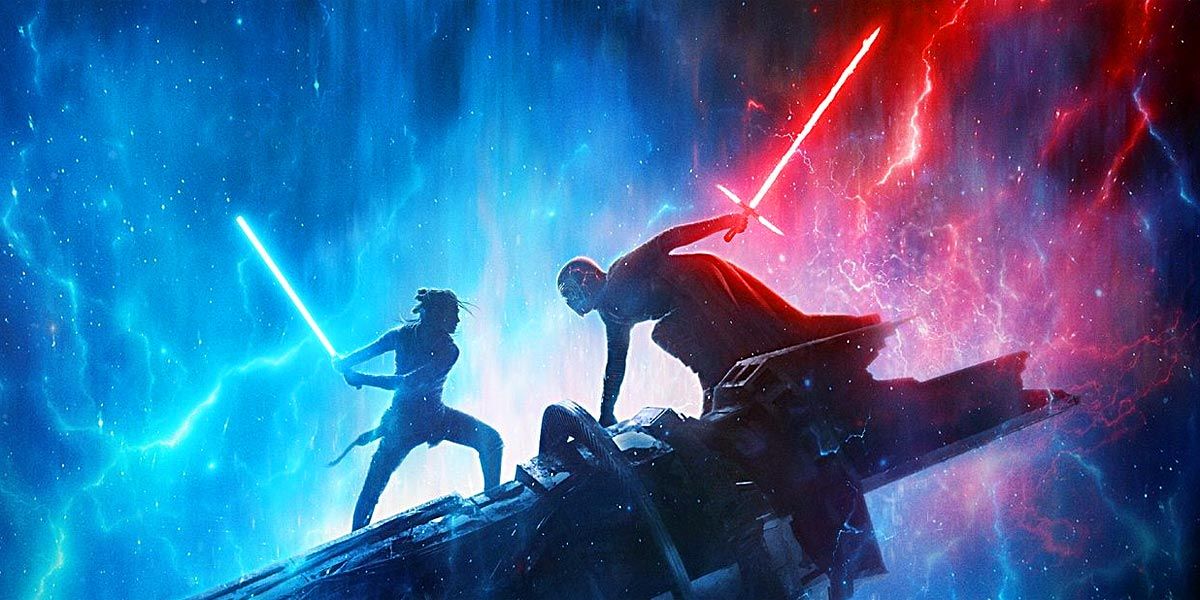WARNING: The following contains spoilers for Star Wars: The Rise of Skywalker, in theaters now.
When Disney's take on Beauty and the Beast first premiered in 1991, critics loved it. It was a fun movie with that charming Disney flair, but if one looked closely, it was actually a very concerning story about emotional abuse and domestic violence. Rey and Kylo Ren's relationship in the Star Wars sequel trilogy -- and most importantly, in The Rise of Skywalker -- matches the same beats as the earlier film.
The trilogy tries to make a romantic lead out of Kylo Ren, ignoring the fact that he's tortured, gaslit and manipulated Rey throughout the course of the three films. These aren't the actions of a romantic hero, but of a villain. The problem is, Star Wars tries to imply Kylo Ren is both a romantic hero and villain, making the romantic scenes feel out of place and baffling.
THE FORCE AWAKENS
When Rey first encounters Kylo Ren, he terrifies her. She tries to defend herself against his assault but is ultimately kidnapped and tortured in his chambers for information. The interrogation scene is unsettling, and intentionally so. When a viewer mentioned that the encounter felt like a rape, director J.J. Abrams confirmed their perspective, calling it "a violent mind rape."
During the interrogation scene, Rey is visibly terrified as Kylo forces his way into her mind, rummaging around for information. He says, "I can take whatever I want." That sense of entitlement over her and her memories isn't just textbook abuse, it's a form of assault. This scene isn't romantic, it's a violation.
Later, when Kylo and Rey face off in the snow, Kylo is once again overcome by his feelings of entitlement and superiority. The novelization of the film spells it out quite clearly. When Rey gets the Skywalker-legacy lightsaber, Kylo's text reads, "He hates her. This girl. This garbage picker. This amateur who somehow drew his family's lightsaber to her hand, overpowering his own bond with The Force."
THE LAST JEDI
Abusers tend to wear two masks. They're "Jekyll and Hyde" personas, so to speak. In Beauty and the Beast, this is demonstrated quite literally. On the one hand, there's the Beast, a violent and angry creature, and on the other there's the Prince, the well-mannered gentleman. The Last Jedi employs this same tactic by implying that Ben Solo and Kylo Ren are different people. Rey wants to know Ben, but she isn't exactly a fan of Kylo Ren (since you know, he tortured her).
Kylo tells her to join him, isolating her from her mentor, Luke, who warns her against trusting him. Rey is lured out of her world and into his, under the premise that he might change.
He tells her about her past, holding critical information about her over her head. "You're nobody, but not to me," he says. Once again, this is textbook emotional manipulation. He wants her to need him, he needs her to. And by the end, when she refuses his hand, he quite literally tries to kill her again (with the added bonus of framing her for Snoke's murder). He punishes her for rejecting him.
Their Force bond is often touted as a "soulmate link" but it wasn't a voluntary one. Snoke bridged their minds, taking away the choice for both of them. In fact, the only character Rey has a natural Force bond with is Finn, which is evidenced by the way they are able to feel the other is in danger in The Rise of Skywalker.
By the end of The Last Jedi, Rey shuts the door on Kylo when he tries to reach out for her, and both go their separate ways with her severing that tie. They aren’t allies, they’re adversaries.
THE RISE OF SKYWALKER
The Rise of Skywalker provides the most damning evidence for why the unfolding of this relationship is so disturbing to watch.
One key scene early on where Kylo is hunting Rey down so he can kill her is a perfect example of the kind of disrespect for boundaries he consistently shows her. He badgers her, asking why she didn't take his hand. He then says, "You can't hide, Rey. Not from me. I'm going to find you and I'm going to turn you to the Dark Side. When I offer you my hand again, you'll take it."
Ordering her around is hardly romance, but he does make for a convincing villain here. What's more, this interaction ends with him ripping the necklace she's wearing off her body and destroying it. This is physical aggression, used solely to intimidate and threaten her. In turn, Rey is notably shaken and disturbed by the interaction.
Later, they are connected yet again through the Force while Rey is in Kylo's chambers. Rey says "You're hard to get rid of." Kylo repeatedly pesters her, until Rey literally pleads with him to stop. This bond isn't romantic, it's a means for Kylo to violate Rey's personal space and boundaries, harassing her until she can't take anymore. The scene is unsettling on its own, but more so when you realize the director wants you to view them as a romantic pairing, not just a villain tormenting a hero. As a villain, Kylo Ren works. As a romantic lead...not so much.
Kylo also pushes Rey in the desert of Pasaana, forcing her to expel lightning from her fingertips and making her believe she killed Chewbacca. He later admits that he did this on purpose to show her her true self. Quite literally, he pushes her until it brings out the very worst in her, a part of herself she doesn't like.
The most uncomfortable part of the film comes at the end. The Beast sheds his aggressive mask to unveil himself as the Prince. Kylo Ren is gone and Ben is back! But... this doesn't absolve him of what he did to Rey before. Yet, his lone act of heroism is rewarded with a kiss from the very woman he's consistently violated.
The romantic subplot isn't just unearned, it's bizarre, and most importantly, it's not enough. The idea that a woman's love could change Kylo Ren isn't "girl power," it's dangerous. Saving Kylo Ren from himself was never Rey's job to begin with, especially considering he's a grown man who is responsible for himself.
The idea that someone can change their abusive partner is troubling, but most importantly it's a myth. Abusers seldom change their colors. While Ben might be sorry for his actions and hope he can change, it doesn't erase what he did either --especially not where Rey is concerned. It's an odd narrative choice to have Rey consistently appear to be afraid of him, plead with him to leave her alone, and then, by the film's end, get the pair together (even if for only a second).
After Kylo's death, Rey notably has little reaction. She's almost unbothered by it, and instead, happily runs to rejoin her friends, Finn and Poe, whom she embraces with a smile. She conducts a burial for Luke and Leia, two people who believed in her and wanted the best for her. She doesn't do this for Ben. In many ways, this scene shows Rey as a woman who is now free of the scars of her abuse, happily ready to start a new day.
Like Beauty and the Beast, The Rise of Skywalker attempts to sell the troublesome myth that abusive behavior can be changed through love -- whether it's the love of Leia Organa Solo, Han Solo or Rey. In the era of #MeToo and increased voices for survivors, it's unfortunate that Episode IX chose to go down this particular narrative route.
It's not that Rey can't go up against a villain or face challenges (or have a romantic subplot). It's not that Kylo Ren can't be a villain and do bad things either, but the reasons to get Rey together with him despite their deeply antagonistic dynamic are hardly ideal.
It's not that there isn't room for romance in Star Wars either. Han and Leia constantly bickered but they were never abusive. Once Anakin choked his wife, he lost the girl. He didn't reunite with her. Daisy Ridley had it right when she called the pairing "toxic" -- and Adam Driver had it right when he said Kylo Ren wasn't "boyfriend material."
The Rise of Skywalker isn't a bad film because of this plot, there's still a lot of Star Wars fun to love in the movie. But it's not without issues either, and the film's indecision on whether Kylo Ren is a romantic hero or ruthless villain ends up creating a worrisome dynamic.
Directed and co-written by J.J. Abrams, Star Wars: The Rise of Skywalker stars Daisy Ridley, Adam Driver, John Boyega, Oscar Isaac, Lupita Nyong’o, Domhnall Gleeson, Kelly Marie Tran, Joonas Suotamo, Billie Lourd, Keri Russell, Anthony Daniels, Mark Hamill, Billy Dee Williams, and Carrie Fisher, with Naomi Ackie and Richard E. Grant. The film is now in theaters.




